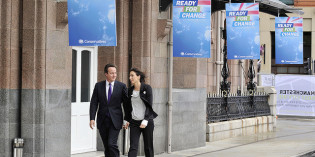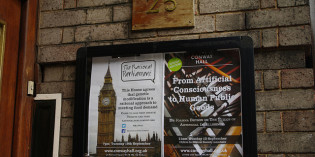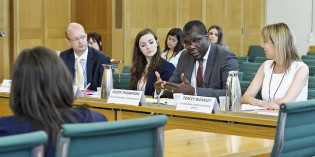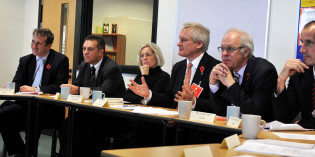Parliament

20 things we learned about democracy in February 2014
February is the shortest month of the year, but that doesn’t mean that we haven’t learned an awful lot about democracy. In just 28 short days, we’ve found out about online voting, the public’s dismal view of Prime Minister’s Questions, perceptions of corruption, and an unlikely revival for a Jeffrey Archer storyline. Similar PostsBeyond metro […]

The Wright reforms changed Parliament, but there remains scope for further reform
The Reform of the House of Commons Committee (also known as the Wright Committee) suggested a number of changes which have, since their implementation, had a tangible effect on the relationship between Parliament and the executive. Despite this, there is still scope for further reform on select committees, Scotland, the right of recall, and the House […]

Prime Minister’s Questions needs to change to improve Parliament’s reputation with the public
Prime Ministers appear weekly in the House of Commons to answer questions from the Leader of the Opposition and other MPs. The format and tone of Prime Minister’s Questions has been criticised, however, for showcasing a confrontational style of politics. In this post Beccy Allen shares findings from Hansard Society research into the public’s views of […]

The Byles bill on Lords reform is important, but needs amending if it’s not to damage the Lords
Effective reform of the House of Lords has generally been achieved by steady, incremental steps, with attempts at ‘big bang’ changes usually failing. The latest attempt at modest reform, introduced via a Private Members Bill by the Conservative MP Dan Byles has many virtues, argues Meg Russell, but needs to be amended if it is not to […]

Do we need more scientists in Parliament? They may not make any difference
There is one scientist in the current House of Commons, and only a handful more with any kind of scientific background. This fact is frequently used to illustrate Parliament’s apparent inability to bring about evidence-based policymaking. However, as Mark Goodwin argues, parliamentarians with scientific backgrounds don’t tend to vote any differently from their non-elected counterparts, […]

Constitutional amendments by popular initiative: lessons from Croatia’s constitutional outlawing of gay marriage
On 3rd December 2013, the Croatian public voted in support of adding a provision to their constitution which defines marriage as “a union between a man and a woman”. Croatians effectively voted to constitutionally entrench a ban on gay marriage. The prohibition of same sex marriage in the constitution is in itself is not particularly […]

Book Review: Democratic Decline and Democratic Renewal: Political Change in Britain, Australia and New Zealand
Ian Marsh and Raymond Miller link the decreasing quality of democracy to the failings of political parties in Democratic Decline and Democratic Renewal. This detailed study of the politics of the UK, Australia and New Zealand is an ambitious attempt both to document decline and to reverse the trend, finds Jack Simson Caird, who is impressed by the […]

Selecting committee witnesses: experts back the call for a more even gender balance
Democratic Audit recently published a new report which analysed the identity of select committee witnesses in view of their increasing prominence and influence. Our research found that there was a substantial gender imbalance between those who speak in front of committees. We asked a number of democracy experts to give their views on the research, the […]




 Democratic Audit's core funding is provided by the Joseph Rowntree Charitable Trust. Additional funding is provided by the London School of Economics.
Democratic Audit's core funding is provided by the Joseph Rowntree Charitable Trust. Additional funding is provided by the London School of Economics.